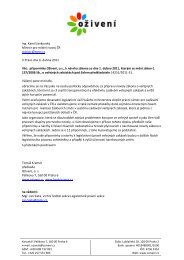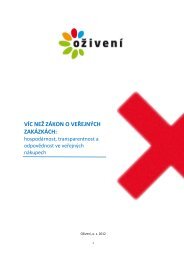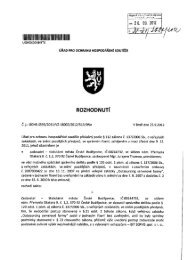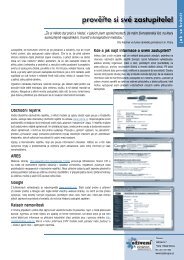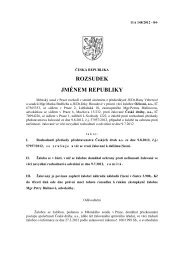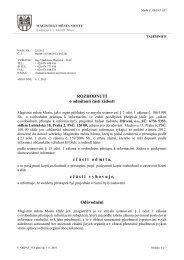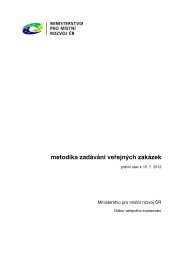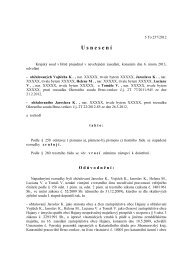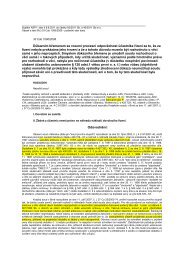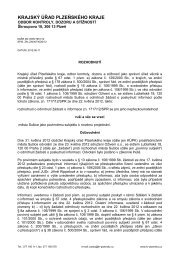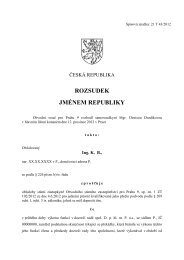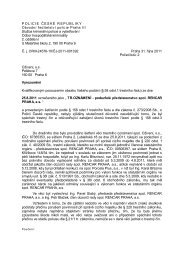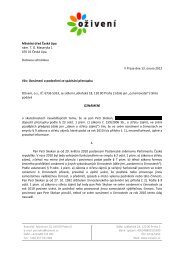Managing Conflict of Interest - Organisation for Economic Co ...
Managing Conflict of Interest - Organisation for Economic Co ...
Managing Conflict of Interest - Organisation for Economic Co ...
You also want an ePaper? Increase the reach of your titles
YUMPU automatically turns print PDFs into web optimized ePapers that Google loves.
Executive Summary xvThe <strong>Organisation</strong> <strong>for</strong> <strong>Economic</strong> <strong>Co</strong>-operation and Development(OECD) approved in 2003 the Recommendation on Guidelines<strong>for</strong> <strong>Managing</strong> <strong><strong>Co</strong>nflict</strong> <strong>of</strong> <strong>Interest</strong> in the Public Service,which provides a comprehensive international benchmark to helpgovernments review and modernize COI policies and practices.The OECD also developed a tool kit to support implementationand reviewed progress made in applying the Recommendation inmember countries in putting COI regulations into practice. OECDsurvey responses received from more than 30 countries revealchallenges in COI implementation and en<strong>for</strong>cement. While mostcountries have developed legislation and preventive measures <strong>for</strong>post– public employment, the prohibitions are mostly general andrarely tailored to specific risk areas, and implementation mechanismstend to be weak. Measures <strong>for</strong> supporting, tracking, andensuring the implementation <strong>of</strong> decisions on new employmentare either lacking or inconsistent. The survey results emphasizethat, beyond establishing appropriate legislative and administrativeframeworks, managing COI requires targeted implementationand en<strong>for</strong>cement tools. The OECD has compiled checklists, modelcodes, and training materials to support the implementation <strong>of</strong>COI regulations.Many countries are grappling with the challenge <strong>of</strong> implementingnew laws, procedures, and en<strong>for</strong>cement instruments. Thailandhas passed several laws and regulations targeting COI issues andhas established the National <strong>Co</strong>unter <strong>Co</strong>rruption <strong>Co</strong>mmission(NCCC) as the primary anti-corruption agency. The legal frameworkin Thailand suggests that measures <strong>for</strong> preventing COI are in place.However, NCCC has had limited success in en<strong>for</strong>cing these laws;the backlog <strong>of</strong> corruption and malfeasance cases, says the NCCC,has made it difficult to focus specifically on COI issues. Thailand’sexperience underscores the importance <strong>of</strong> ensuring that there issufficient capacity coupled with political will to implement anden<strong>for</strong>ce COI regulations.Hong Kong, China also has a legal and management framework<strong>for</strong> addressing COI, featuring an <strong>of</strong>ficial code <strong>of</strong> conduct,regulations and guidelines <strong>for</strong> civil servants, a robust and transparentdeclaration system, regular awareness training, and sanctions<strong>for</strong> misconduct, en<strong>for</strong>ced through Hong Kong, China’s Independent<strong>Co</strong>mmission Against <strong>Co</strong>rruption (ICAC). ICAC credits a robustand flexible en<strong>for</strong>cement regime, ef<strong>for</strong>ts to work with the privateADB/OECD Anti-<strong>Co</strong>rruption Initiative <strong>for</strong> Asia and the Pacific



